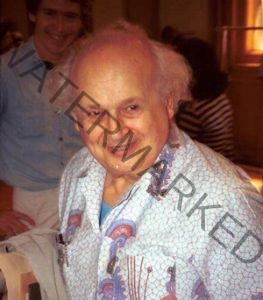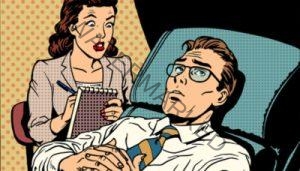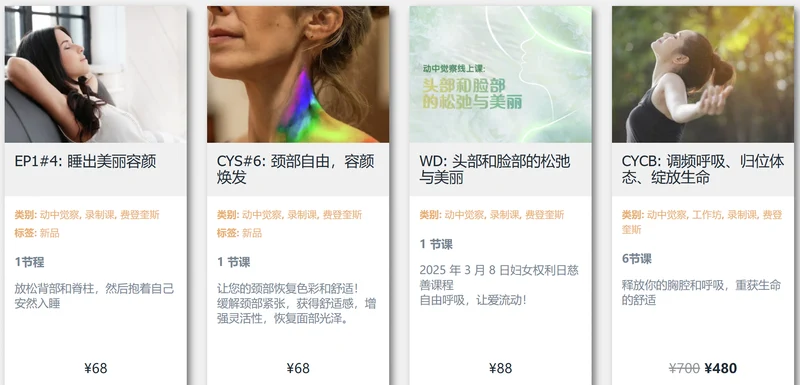Apart from his books, we have very few audio, and even less video material about Moshe Feldenkrais which can help us to try and continue to understand who he was and what he was all about.
Nevertheless, a number of recordings of the lessons he taught in Israel, in Tel Aviv, exist on tape, some of which have been transcribed from Hebrew to English.
In some of them, he could support the practice of the movements taught, with sentences, quotations or personal comments on his vision of learning, or of life in general.

Here are some of them, part of the transcript of a lesson entitled “Fresh standing”. This lesson was given between the 1950s and 1970s.
[…]
Fresh is someone who does not have any troubles that Mom and Dad pay for everything, do everything and you look at the ceiling. That is all. Then, the person can be fresh. Afterward you try to get the same thing in many different ways — with analysis, with meditation, with exercise — and it does not succeed. The proof is that there are more than a thousand different methods like this in the world and everyone roams from one to the other.
There is only one way — to do what parents do. This means the parents took the responsibility for the child. This means the son, the daughter, do not have responsibility. All their responsibility is not to bother the parents. The parents — do not upset them. That is all.
If they were not to be responsible for what they are doing, for everything […] they take responsibility for themselves. They find themselves in the same position that they were when they were young. This means that they have confidence, standing, and freshness.
What is responsibility in adulthood? It is many things. It is very difficult to do it. It is very difficult to do. Responsibility is that the individual is able to organize his life so it will be comfortable without bothering others, especially people they are close to. If he disturbs others, then slowly it becomes uncomfortable for him. This is responsibility for the movement, responsibility for the conditions. This is responsibility for one’s health. This is responsibility for whatever the individual does when he is alive. This is very difficult to do.
[…]
And now, for freshness, you just need one trick. This is power because you need a lot of power to do what is necessary for a person to do despite a slight resistance of the environment, of someone close to you, of public opinion, of the habits themselves. By themselves, they are the power that resists what you are doing.
Therefore, power, freshness — it is the same thing. A person who has power to stand on his own, to do what is necessary for himself so he is able to live without disturbing others […] because if he disturbs the ones who are close to him, this makes the situation worse than before. If he does not have power, it is better that he gives in and does what analysis would have done, what all the psychiatrists do — to adjust to the surroundings. This means to wipe yourself out and to become part of the surroundings, to become a vegetable, to adjust.
There are a number of others that understood this, like Maslow and others who understood that adjusting is the way of weakness.
Note: Abraham Maslow is a mid-twentieth century American psychologist, considered the founder of humanistic psychology. He is best known for his Hierarchy of Needs.
The most important thing is not to try to prove whether Moshe Feldenkrais is right, or whether psychoanalysis can help or not, because the two approaches, the one taught by Professor Feldenkrais, and the one of psychoanalysis, each have their intrinsic values.
But rather to accept that some people can help themselves, and that others do not have this inner strength, as in the image of the diversity of life and of the human species.
This inner strength, which allows the human being to reach maturity and emancipation is, of course, a concept taught in many different philosophies, religions or personal development practices, but in the Feldenkrais Method it is at the heart of what makes the essence of the teaching and learning experience.
Through these passages and words, one can see how much of his philosophy of life is imbued with his own strength of character and the self-determination that Moshe Feldenkrais has demonstrated from a young age.

Even if his words are in some respects excessive, because they may suggest that they are not part of the diversity inherent in the human species, they call us to keep a ‘fresh’ attitude to the teaching, instruction or education we receive or produce.
When we play the role of “parent”, whether as teacher, parent or referent of some kind, how much of our speech supports this intention of “freshness”?
When we debate, or want to impose our point of view or our values, are we “fresh”? Fresh in the sense that we can disregard pre-suppositions, values, and judgements, fresh in the sense that we are fully listening to others.
Moshe Feldenkrais comments about psychoanalysis or psychotherapy are excessive, indeed there is no doubt that these techniques have helped people, probably more than the Feldenkrais Method has done so far. But it is also true that they have lost, or caused to be lost, many people through lack of openness or encouragement to take initiative or risk.
There are few who enjoy self-imposed suffering, but there are many who derive their prosperity from directive and demeaning teachings, keeping their followers or clients under some form of constrained mind.
Can there be freedom of mind, freedom of body and emancipation in an environment of rules and impositions? Or an environment of submission to the environment and traditions?
Some say yes. I leave it to you.


不要忘记查看我们即将举行的活动和课程的日历。
Don’t forget to check the calendar of our upcoming events and classes.
